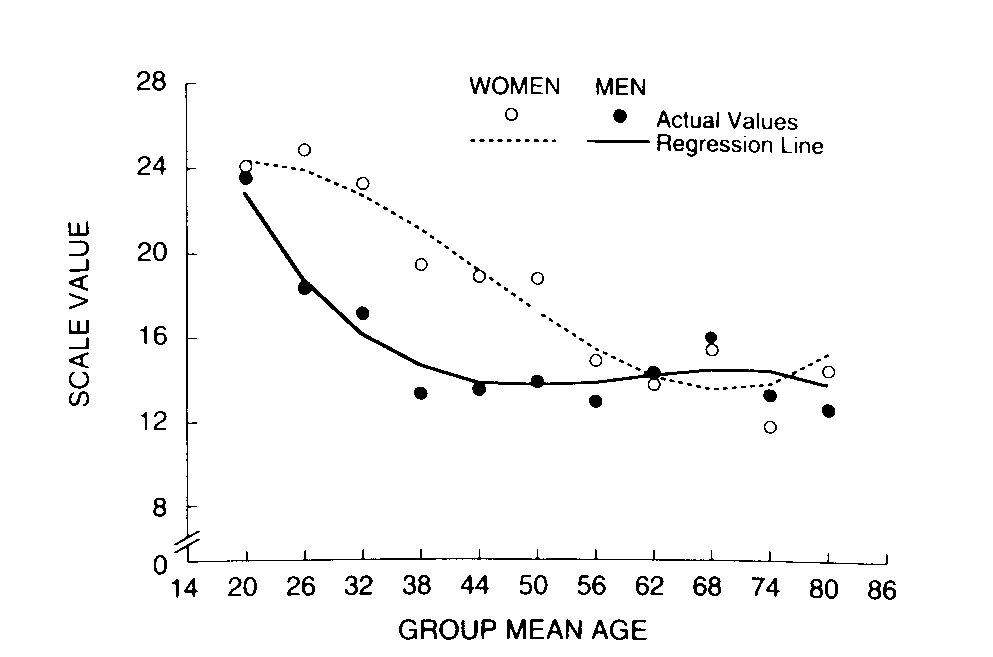Dream recall
Questions frequently arise about dream recall. It would seem that around 80% of the population is able to remember dreaming and what they dreamt (though not all the time). In a 1996 study with 1065 men and 1263 women between the ages of 17 and 92, it was found that dream recall varies with age (Giambra, Jung & Grodsky, 1996) (see the graph at the top of the page). As might be expected, younger people are on average able to remember their dreams much better than older persons. For men, there is a fairly rapid change in dream recall frequency by the time they reach middle age: by 38, it is roughly half what it was at age 20, but then remains more or less constant for the remainder of their lives. Women, on the other hand, exhibit a more gradual fall off in dream recall frequency: starting at roughly the same level as that of men when young, their frequency level falls to that of the males at around age 60 and then remains constant.
Everyone (at least, no exceptions have yet been found) has REM phases (unless they were suppressed artificially) and it is assumed, therefore, that everyone dreams. Some, though, are better at remembering their dreams than others. There are people who are unaware that they dream. They seem to function admirably which indicates that the recalling of dreams is not necessary for a happy, fulfilled life. On the other hand, having no dreams to ponder about would be felt as a loss by many.
LSD or peyote derivatives, even in minute amounts can improve dream recall. The same seems to be true for lecithin as well as substances of the vitamin B6 complex, but here caution is advised since these are toxic in large doses. Tryptophane, an amino acid found in dairy products as well as low fat, high carbohydrate diets also seem to have positive effects on dream recall. It is said that eating lentils and grains, natural sources of vitamin B6, aids dream recall and there is a herbal pillow that is supposed to be beneficial in this way, too (Shafton, 1995, p. 16). Sleeping on the right side, which promotes circulation in the left cerebral hemisphere, also seems to promote dream retention (Ibid, note on p. 461).
Previous section Next section List of sections List of chapters

